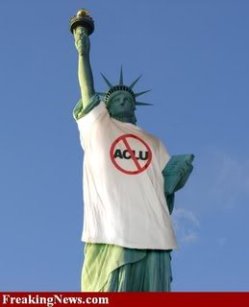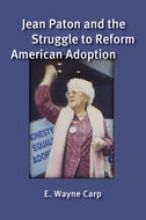Donation of Jean Paton Book Royalties to the AAC and CUB
I am donating 10 percent of the royalties of my book, Jean Paton and the Struggle to Reform American Adoption, to the American Adoption Congress and another 10 percent to Concerned United Birthparents. Jean was instrumental in creating both organizations and consequently it made sense that I donate to them. But even more important, as you will read in my book, Jean hated for people to make money off the backs of adopted people and birthmothers, and it is that sentiment that fueled my decision.
To purchase the book at a 30 percent discount: enter PATON in the shopping cart box labeled Enter Promotion Code. This offer is only available through the University of Michigan Press website and , not available in bookstores.
Offer Expires April 30, 2014.
For more information and to order: UMich_ad (1)
Future Plans
Off to NYC to the American Historical Association’s annual conference. After I return, I will begin posting some of Jean Paton’s pamphlets. They are really interesting (I finally found a scanner that makes the process fairly easy). I’m also beginning to research a book on the history of international adoption.
Jean Paton and Chelation Therapy
All of Jean Patons’ many adoption reform activities took its toll on her health. By the fall of 1996, Jean, now 88 years old, investigated the credibility of chelation therapy and, convinced of its effectiveness began treatment in February 1997. Jean was especially impressed with Dr. Melissa Taliaferro, an MD from a Texas university and pioneer in chelation therapy, who had opened a small clinic in the town of Leslie, about fifty miles from Jean’s home in Cedaredge, Colorado. Among the multitude of claims made for chelation therapy were that it would clean the patient’s arteries, reduce high blood pressure, diminish free radical activity, improve memory, improve blood flow to the heart, brain, body organs, and legs, and improve enzyme activity. However, the treatment is not scientifically sound: the evidence supporting it consists of anecdotes, testimonials, and poorly designed experiments. Although initially finding some benefit from the chelation therapy, Paton abruptly discontinued treatment after one month.
Jean Paton on the ACLU
The ACLU has long opposed New Jersey adoption reformers’ efforts to unseal adoption records. As early as 1972, Jean Paton expressed shock at the ACLU’s conservative position in a letter to an official of the organization. Here is part of Jean’s letter:
“Some time ago I contacted persons in the ACLU about the violation of the rights of adopted people, who must rely upon the whimsy of a judge of they are ever to learn the real facts about themselves before adoption. I was greatly shocked to learn from the response of ACLU that they did see the issue. I wondered if they might be too involved in racial problems, admittedly acute, or whether there was a certain brand of liberalism involved in the record sealing that the ACLU did not wish to confront. I still do not know what the reason was, or is.”
Four years later, Jean identified the reason: the ACLU stressed “the natural mother’s right to privacy.” She declared that it was “difficult for me to understand how anyone can support that point of view. The rights of privacy are supposed to keep the government off of people’s backs, not separate the generations.”
Adopt a What? A Dog? A Road? A Bridge!
Jean Paton hated the misuse of the word “adopt” when applied to animals or roads. In this 1967 “Letter to the Editor” to her local newspaper, Jean satirized the misapplication of the word and by analogy linked her criticism to the Colorado statute sealing adoption records. Here is Jean’s letter to the editor in full:
I have just read in your paper of the proposed “adoption” of the Fifth Street Bridge in your community. I have the unhappy task of informing you that, since this bridge is a historical designee, its adoption is not possible under the Colorado adoption statutes.
Any adoption is required by these statutes to wipe out the history of the adoptee. Its antecedents must be wiped away from public view, and from the time of its adoption forward no reference may be made of the past.
It would therefore be necessary for your office to remove from your files and place under lock and key any reference to this bridge, all photographs. [This includes] not only your paper, but all papers which contain any reference to it as a historical being.
Sincerely, Jean Paton, Coordinator, Orphan Voyage
Jean Paton on Confidential Intermediary Legislation in Colorado
When the records were put under seal, it was an experiment in Utopia. It was a destructive error, and should be remedied by a sweeping cure, not this intermediary dabbling. I fear that this new quite colonial type of search, a state structure and bureaucracy will be formed which will be immovable. Thus, freedom to the adopted person will never come. The process of being made to consent to having a stranger approach one’s parent instead of going oneself is most demeaning. It encourages adopted people to continue to think of themselves as inferior people. That is what is wrong with it, and it is very wrong. [JP to Rep. Steve Ruddick, Colorado House of Representatives, Jan. 15. 1991]
Jean Paton vs. William L. Pierce and the Battle of Book Titles
In the spring of 1991, Jean Paton issued a book prospectus under the title “The Encyclopedia of Adoption.” An unfortunate coincidence, however, discouraged her from immediately pursuing the project. She received a flyer from the publisher Facts On File announcing the publication of a book with the identical title by William L. Pierce, president of the National Committee for Adoption, an organization opposed to opening adoption records and Christine Adamec, a free-lance writer. A decade earlier, Paton had described Pierce as “a rather horrid person,” a lobbyist for a Texas-financed group who was “running around the country introducing very repressive [adoption] legislation.” She fired off a letter to Facts On File, denying its publicity blurb that the book “fills a void,” and complained that the book “uses my title to present a very limited and biased view of the subject.” Even in anger, Paton could not suppress her puckish wit. She concluded her letter by stating that she regretted the publication of a book by Pierce under any title, “but especially so under a title I had already announced. But I am sure he cares not a tittle.”
Jean Paton and the Struggle to Reform Adoption Published!
Happy me: I recently received the first copy of my book “Jean Paton and the Struggle to Reform American Adoption.” It looks beautiful. For more information, see http://www.press.umich.edu/6242018/jean_paton_and_the_struggle_to_reform_american_adoption
Jean Paton and the Girl Scouts of America
Even before she finished writing The Adopted Break Silence, Paton began marketing the book. Indeed, sometime in December 1953, Paton wrote to the Girl Scouts of the United States of America and to the Camp Fire Girls. Both organizations turned down Paton’s solicitation to call attention to the publication. Mrs. Lewis A. DeBlois, director of the Girl Scouts Program Department, explained to Paton that her adoption study was not suitable to the membership of the Girl Scouts. The organization consisted of girls age from seven to seventeen, and it was the policy of the organization to publicize only materials that would be of direct help to the membership. Paton responded immediately, correcting what she believed to be DeBlois’s misunderstanding.
Paton was quite aware that scouting had nothing to do with adoption, per se.
Religion, Reunion, and Christian Adoption
Although Paton did not subscribe to the New York Times, she kept up with its contents from correspondents, who frequently forwarded her pertinent stories concerning adoption and unmarried mothers. One clipping that was sent to her in October 1959 discussed the New York State adoption law, which required that a prospective adoptive couple profess a religion in order to adopt a child. Otherwise they, along with atheists and agnostics, would be turned down. The unintended consequence of the law, which was leading to conflict between the Roman Catholic hierarchy on the one hand and Jewish adoptive parent groups on the other, was that, when practical, a child would be placed only with persons of the same religion as the birth parents. The strict observance by Catholic welfare leaders of preserving the status quo resulted in childless Jewish parents being deprived of a chance to adopt a child because few Jewish women gave birth to children out of wedlock, and no agency would place a baby in a home of another religion.







